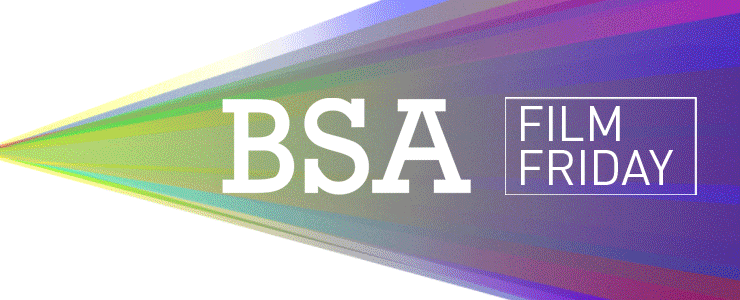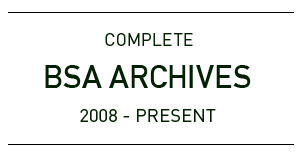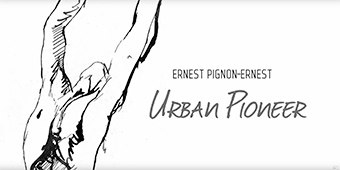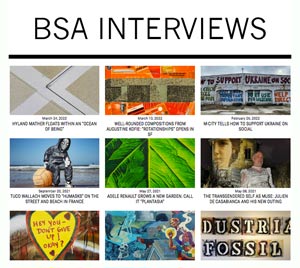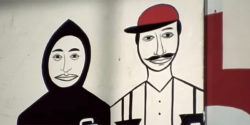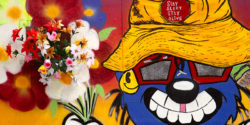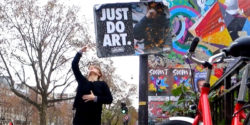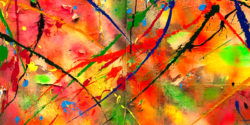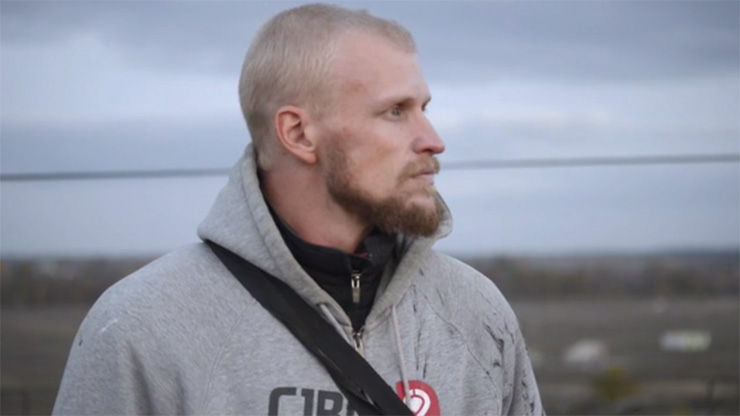
Our weekly focus on the moving image and art in the streets. And other oddities.
Now screening :
1. “Aesthetic of Eas” A film by Kristina Borhes and Nazar Tymoshchuk / MZM Projects
2. 1UP CREW (ONE UNITED POWER) HAPPY NEW YEAR 2018
3. Patrick Hartl & Christian Hundertmark’s Exclusive Debut of “Layer Cake”
BSA Special Feature: “Aesthetic of Eas” A film by Kristina Borhes and Nazar Tymoshchuk / MZM Projects
“We wanted everything to occur naturally in this movie. We wanted to achieve spontaneity,” say film makers Kristina Borhes and Nazar Tymoshchuk about their up close look at graffiti writer/abstract painter EAS. In this new film they have captured the creative spirit in action as unobtrusively as they could, allowing the artist to speak – in a way he never does, they say.
Today on BSA Film Friday we’re proud to debut this new portrait by three artists – one painter and two film makers – to encourage BSA readers to take a moment and observe, inside and outside.
The directors spoke with us about the making of the film, how they developed it, and how EAS works as an artist;
BSA: Can you talk a little about EAS and his painting history and what your connection to his work is?
Kristina Borhes and Nazar Tymoshchuk: Eas started to paint graffiti in 2003. It was a classic graffiti, or at least “as classic as it could be” in Central Ukraine during early 2000’s.. He was truly addicted to lettering for more than decade, but then he started to feel entangled by the letters. Eas was confused by the the meaning of the letters, since all he wanted to do is to play with a shape, but not with the meaning. It was the moment when he made the step forward non-representational painting and became the part of East-European post-graffiti scene.
We’ve met Eas at “Black Circle” Festival in August 2015. It was a significant event for graffiti writers and graffiti-associated abstract painters, therefore we were doing our “field research” about the scene there. Even though, we were familiar with the style of Eas through the online platforms, it was the first time we saw him during the process of creation. At that moment, standing at the bottom of the swimming pool of abandoned Soviet health center and watching how the paint is splashing on the wall yet obeying the artist’s gesture; hearing the spray-can scratching the surface in order to make the finishing lines; experiencing the energy of desolated place released by Eas… At that particular moment we clearly decided that someday we will do the movie about this man. Probably, in his art, in his way of work, in his attitude and approach we felt the truthfulness which is unfortunately very rare in today’s urban and contemporary art.
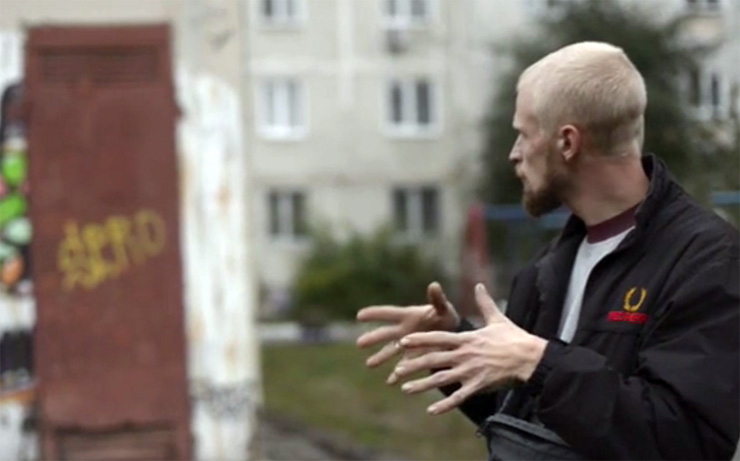
BSA: How did you decide on the pacing of the film, which seems like it is suspended in a honey-like substance.
KB and NT: Yeah, that was pretty much the idea. We wanted to create the feeling as if the time slows down. During those 15 minutes of film the audience should simply follow the tone of voice and deepen into the lines, the shapes, narration, to feel the depth of every word. Most likely, it’s just the way we experience the art of Eas by ourselves. If you will look at some of his artworks for a certain time you will feel how the image slowly absorbs you. We aimed to share this experience and the atmosphere which actually couldn’t be the same without the perfectly convenient soundtrack written by Berlin-based artist Shunsuke Hatori and performed by his band “SINSENSA”.
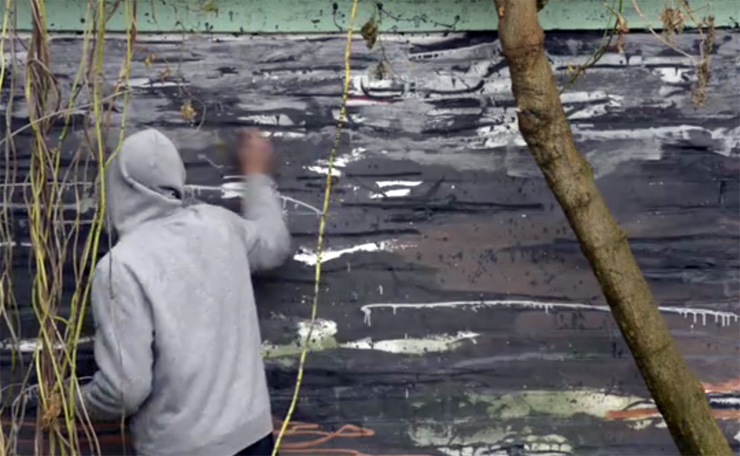
BSA: Did know that EAS was so verbally illustrative when describing his process before you began filming?
KB and NT: Actually, we’re pretty sure that most of the people who know Eas in real life would be quite surprised by the openness of his narration. Eas is not much of a talker, he’s that type of the person who prefers to stay aside, alone with his thoughts and only the closest people around. Before the filming we thought that it’ll be our main challenge, well even Eas was thinking that way. Although, we believe that everything depends on the moment and the right approach. We spent a few days with Eas talking from morning till late night, we’ve met his family and even visited his grandmother. Our recorded interview lasts for almost 7 hours in overall. Frankly saying, it was an amazing experience and the real “hidden jem”. All that we wanted is to have the life talk and not the text prepared in advance. We were asking the hundreds of questions and he just had to answer it freely. That was the principle for this film. We wanted to have the spoken “flow”, just as he has it in painting. But we didn’t even expect that the “flow” will appear to be so candid, open and so truly poetical.
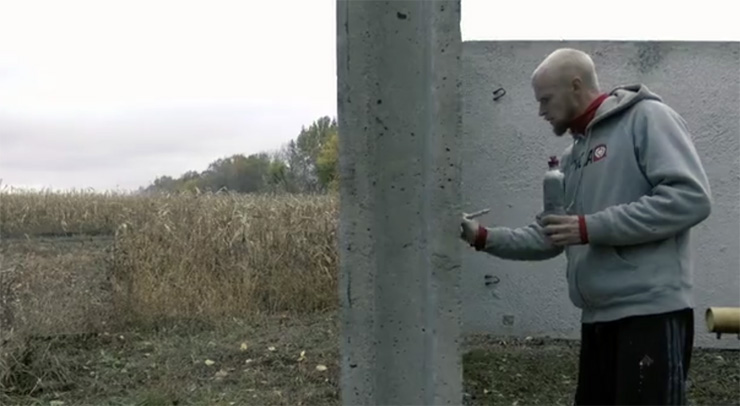
BSA: “When I feel good about the place it means the piece will be more accomplished. More complete” he says in the film. How did you and EAS locate the right location to do his work, and was it difficult to respect his space?
KB and NT: This question hits straight to the point. To respect the space and not interfere with the “energy” between the wall and the artist during the painting process appeared to be our biggest challenge. We knew Eas and how sensitive he is regarding the “spiritual” part of the process. He will never tell that you’re distracting him, but it surely will affect the painting. None of us wanted it to be this way. That’s why it required the certain effort and respect from the both sides. Each of us did our best in order to keep the process as natural as it could be. And it seems like the spirit of the wall let us to capture the magic.
We wanted everything to occur naturally in this movie. We wanted to achieve spontaneity. Therefore, the searching for locations probably was the most interesting part. Together with Eas we were like stalkers, riding in the car through the forests, fields and villages around Kremenchuk city in search for a “zone”, a very special place which could be felt only by him.
“Aesthetic of Eas” is represented as an abstract in 5 sections. Each section (except the fifth, because it contains only artworks, not the process) is visualized by the different location and the fresh artwork in there.

First section “Place” was filmed in the village Andriyky, the village where the ancestors of Eas were living. His grandma still lives there, even though the place is almost a ghost village, only a few people are living there now. Most of the houses are abandoned. There are a lot of artworks made by Eas there. This place is exceptionally special for him.
This year Eas had a special birthday gift in early October. He was hang-gliding over the fields near the city. From the sky he saw the abandoned building in the middle of the field. Surely, he wanted to discover it. This is what he proposed us to do together. After the long journey through the forest and fields we found this mysterious building. It was the abandoned airport Nedogarki. This place definitely has a character and Eas was so excited that he did two artworks there. “Wall”, the second section of the film shows the indoor artwork and the forth section “Line” is visualized by the outdoor artwork of abandoned airport.
The place for the third section “Color” appeared accidentally in the middle of our journey around Kremenchuk. Eas noticed the concrete walls surrounded by the trees near the cornfield. It was a good example how places are finding him by themselves.
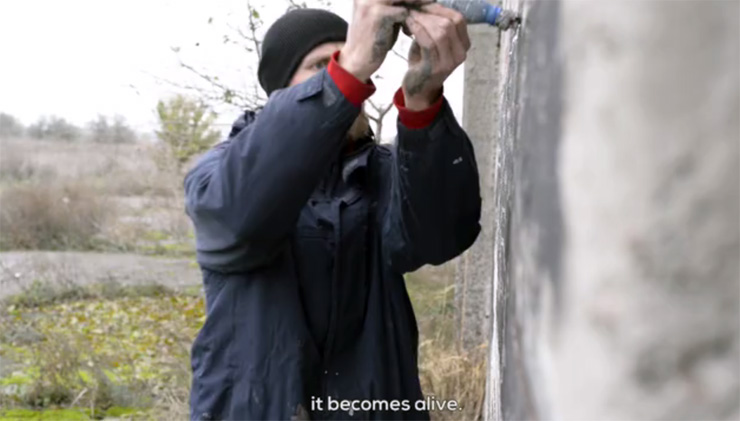
BSA: It looks like he creates some of his his own art instruments. What did you learn from watching his rhythm of painting and splattering and splashing color?
KB and NT: Yeah, he’s very passionate about the new things and methods. The way how Eas works with the paint is truly mesmerizing. This is the main reason why we wanted to make a movie about him so badly. You just have to see it. The gesture, rhythm, concentration… As if he is a shaman during some mysterious ritual. At that moment you really start to think about spiritual, about the “inner necessity”, or “infinite abyss”, about expression over illustration and everything you’ve ever heard about the abstract.
Although, the most important thing is that he’s doing it not because he studied Kandinsky or Pollock, but because it really comes from the inside. You can say it by watching how purely spontaneous he is during the process of creation. Unlike the many urban and young contemporary artists Eas doesn’t do it as symbolic effort of made-up resistance, neither as pathetic attempt to proudly decorate another forsaken white cube, he just doing it, because he simply cannot not to do.
That was the most valuable lesson.

************
*************
All stills above from “Aesthetic of Eas” © MZM Projects
*************
************
1UP CREW (ONE UNITED POWER) HAPPY NEW YEAR 2018
New Years celebrations in Berlin are unlike most other cities – with people exploding fireworks literally all over the entire city for hours. To add to the festivities the 1UP crew also added their own adornment to the trainline, in the middle of all the revelers and explosives.
Patrick Hartl & Christian Hundertmark’s Exclusive Debut of “Layer Cake”
The dynamic duo of Patrick Hartl & Christian Hundertmark have developed an artistic dialogue based in large part on a process of art-making that they discovered together.
Derived from the street practice of “going over” – which is normally looked upon as one artist dissing another – the two graffiti/Street Artists have refined the practice and turned it into a form to celebrate, to study, to appreciate, and turn on its head.
In this short teaser “Layer Cake” explains how it is made and gives a hint at a promising future for the artists who have challenged themselves to create something new together. We are sure there is much more to come!
Other Articles You May Like from BSA:
Buenos Aires is hosting the Youth Olympic Games in two years and Street Artist Segatori is already getting the word out with this new series of murals featuring athletes bolting across eight story h...
Reality TV is usually completely devoid of reality. That isn’t the exact comparison Andreco said on his Facebook page but we thought it was a fitting analogy. Street Art in a museum or gallery can som...
Aunt Marge is on the phone to see if your mom can locate the recipe for the cranberry relish dish that she made last year - the one with the grapefruit and fresh ginger. While you're talking to h...
This fresh new survey of Polish artists primarily born in the 1980s is called RETRANSMISSION__ . It has as much to do with the influence of digital arts as it does with the plastic arts and art in the...
“Make sure you wear the headphones!” says beaming Brooklyn Museum Director Anne Pasternak as she greets visitors to the exhibition “David Bowie is…” this week and indeed the audio experience is peerle...
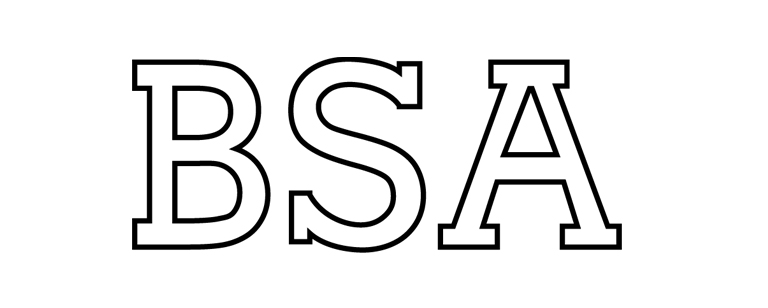 BROOKLYN STREET ART LOVES YOU MORE EVERY DAY
BROOKLYN STREET ART LOVES YOU MORE EVERY DAY
